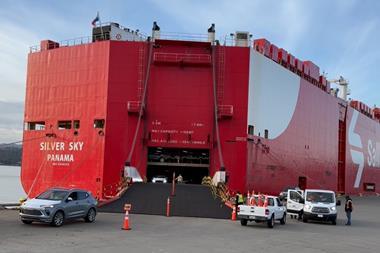 German carmaker Daimler says it will buy battery cells costing more than €20 billion ($22.6 billion) over the next decade as it prepares to introduce 130 electrified variants of Mercedes-Benz cars by 2022.
German carmaker Daimler says it will buy battery cells costing more than €20 billion ($22.6 billion) over the next decade as it prepares to introduce 130 electrified variants of Mercedes-Benz cars by 2022.
The group is investing €10 billion to make the models, plus another €1 billion on an in-house global battery production network. The company, based in Stuttgart, is now turning its attention to buying a key component of electric vehicle batteries.
“With the purchase of battery cells for more than 20 billion euros, we are systematically pushing forward with the transformation into the electric future of our company,” said Dieter Zetsche, chairman of Daimler’s management board and head of Mercedes-Benz Cars.
Wilko Stark, in charge of procurement and supplier quality on Mercedes-Benz Cars’ divisional board, added: “With extensive orders for battery cells until the year 2030, we set another important milestone for the electrification of our future electric vehicles ... With our partners, we ensure the supply of our global battery production network today and in the future using the latest technologies.”
Declining to name suppliers or the nature of purchasing arrangements with them, a Daimler spokesman told Automotive Logistics: “We purchase the cells on the world market. This ensures that we have the best possible technology. The suppliers already produce battery cells in Asia and Europe and are expanding further in Europe and the USA.”
Mercedes-Benz Cars’ global battery production network will consist of eight factories on three continents. The first factory in Kamenz is already in series production and a second will open there at the beginning of 2019. Two more will be built in Stuttgart-Untertürkheim, and one at the company’s Sindelfingen site, all in Germany. Outside Europe, three will be set up in Beijing (China), Bangkok (Thailand) and Tuscaloosa (US).
“The local production of batteries is an important success factor in Mercedes-Benz Cars’ electric offensive and is decisive for meeting the global demand for electric vehicles flexibly and efficiently,” the group said.
By 2022, Mercedes plans to have its entire portfolio electrified, from the Smart car range to SUVs. Three years later, the company hopes sales of battery-electric vehicles will be between 15% and 25% of total sales, depending on individual customer preferences and development of public infrastructure.
Daimler’s commercial vehicles are also going electric, with its first all-electric lorry, the Fuso eCanter light-duty truck, sold since last year. The all-electric eActros for heavy-duty distribution transport has been on Germany’s roads since June, while series production of buses is underway and the first eCitaro was recently delivered to Hamburg’s public transport operator, Hamburger Hochbahn.
In the van segment, first deliveries of the mid-size eVito started last month and the eSprinter will follow in the second half of 2019.
Daimler added an important, integral element of its electrical strategy is consistent expansion of research and development activities into battery cells.“These include the continuous optimisation of the current generation of Li-ion systems, the further development of cells bought on the world market, and research of the next generation of so-called post-lithium-ion systems,” it said.






































